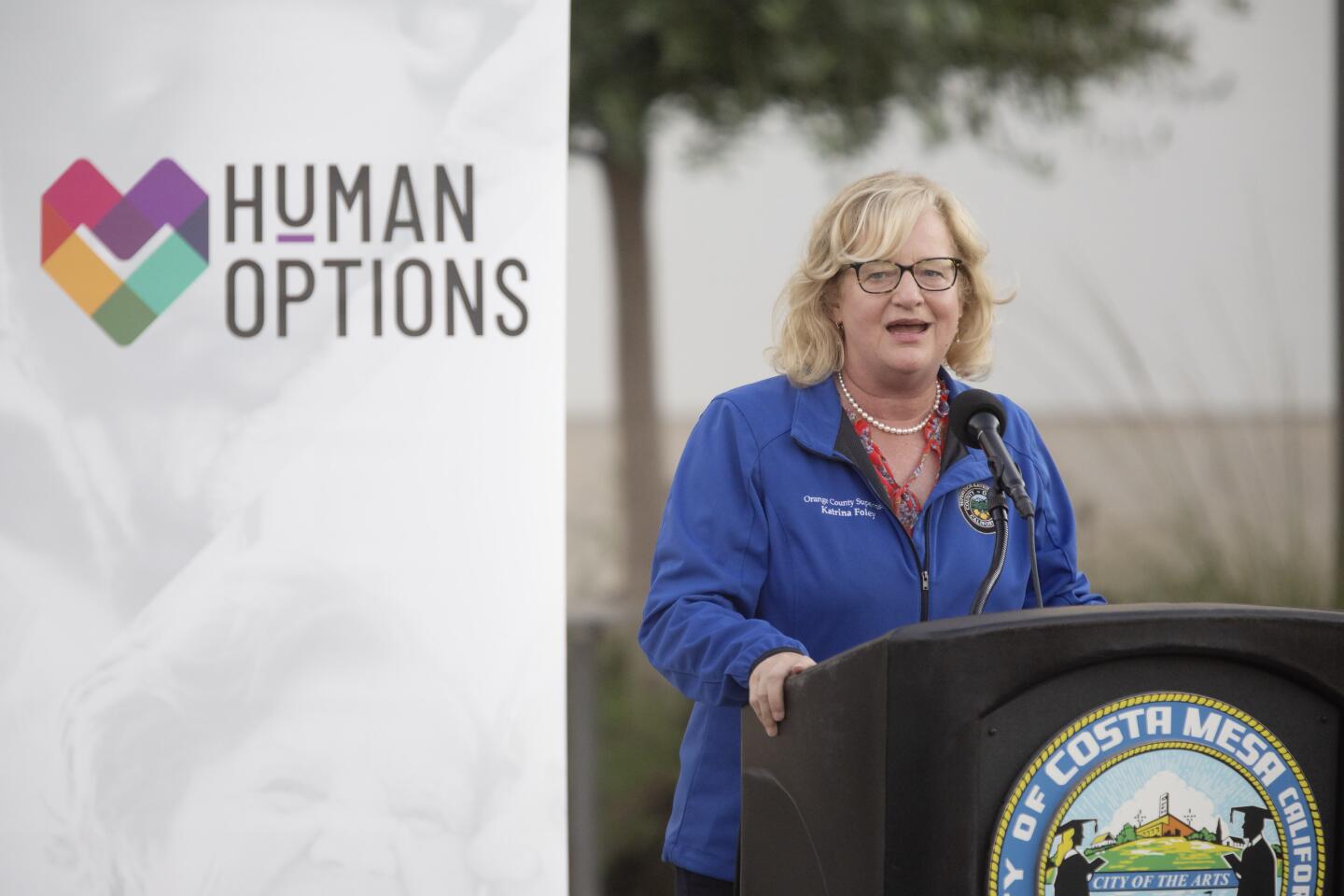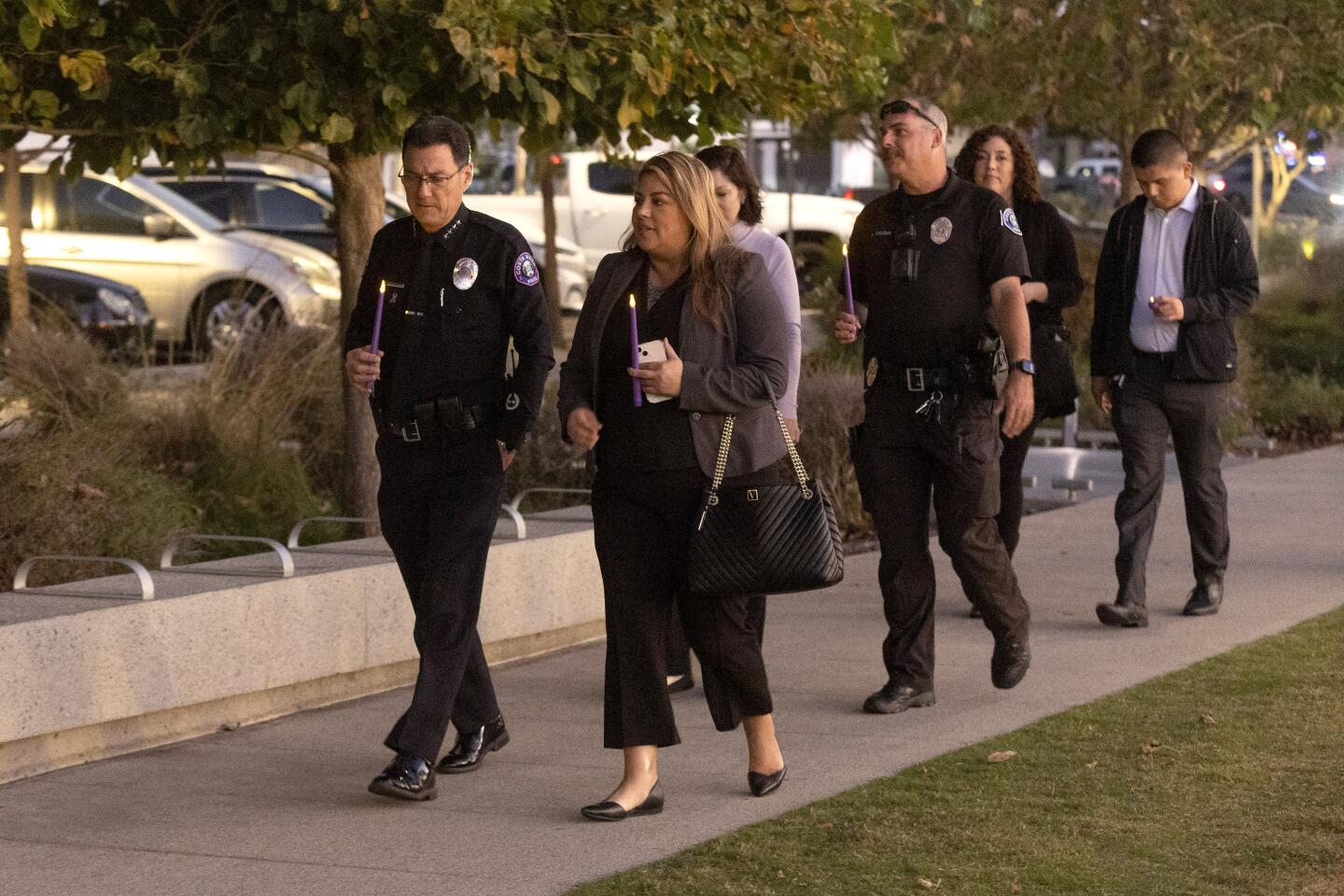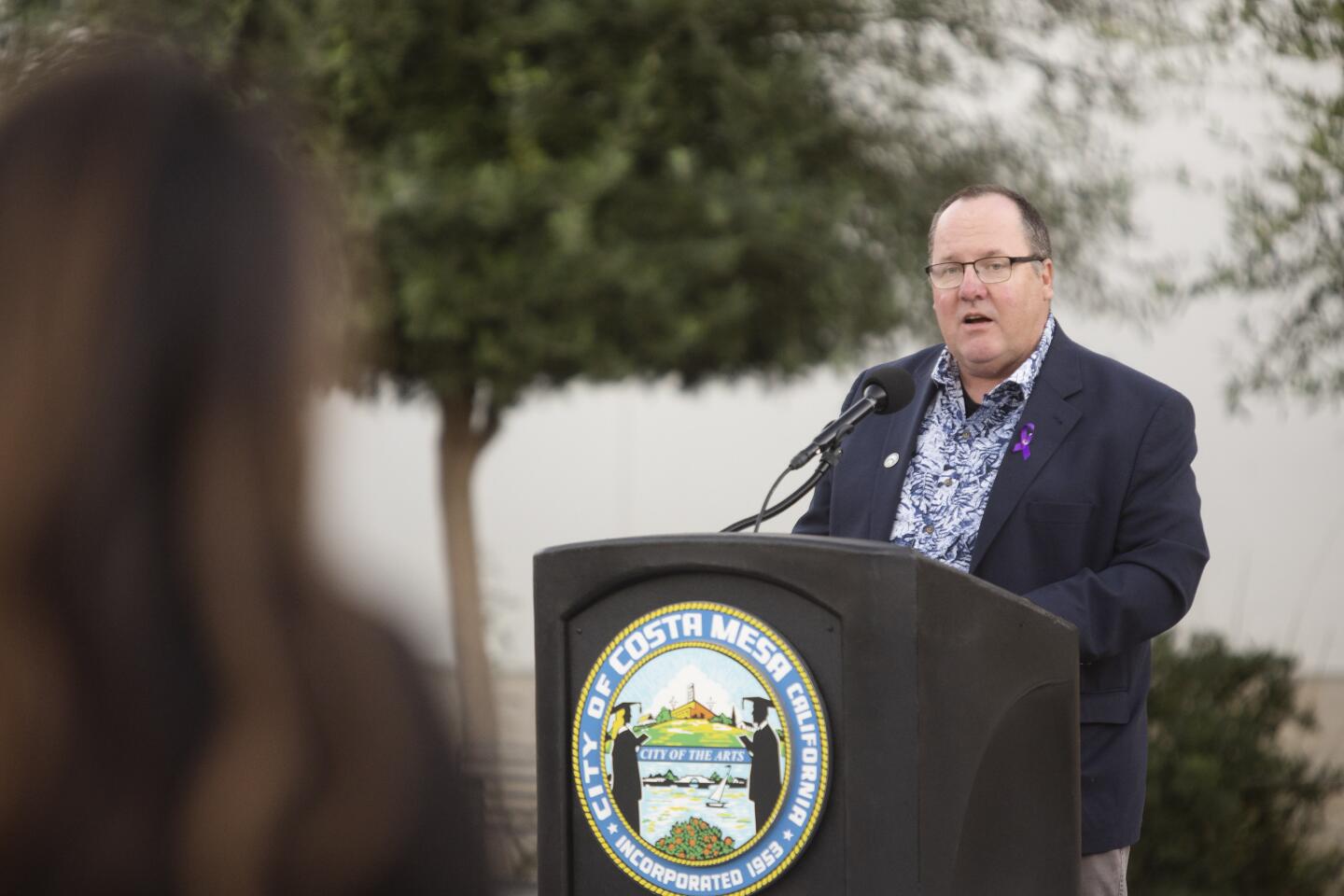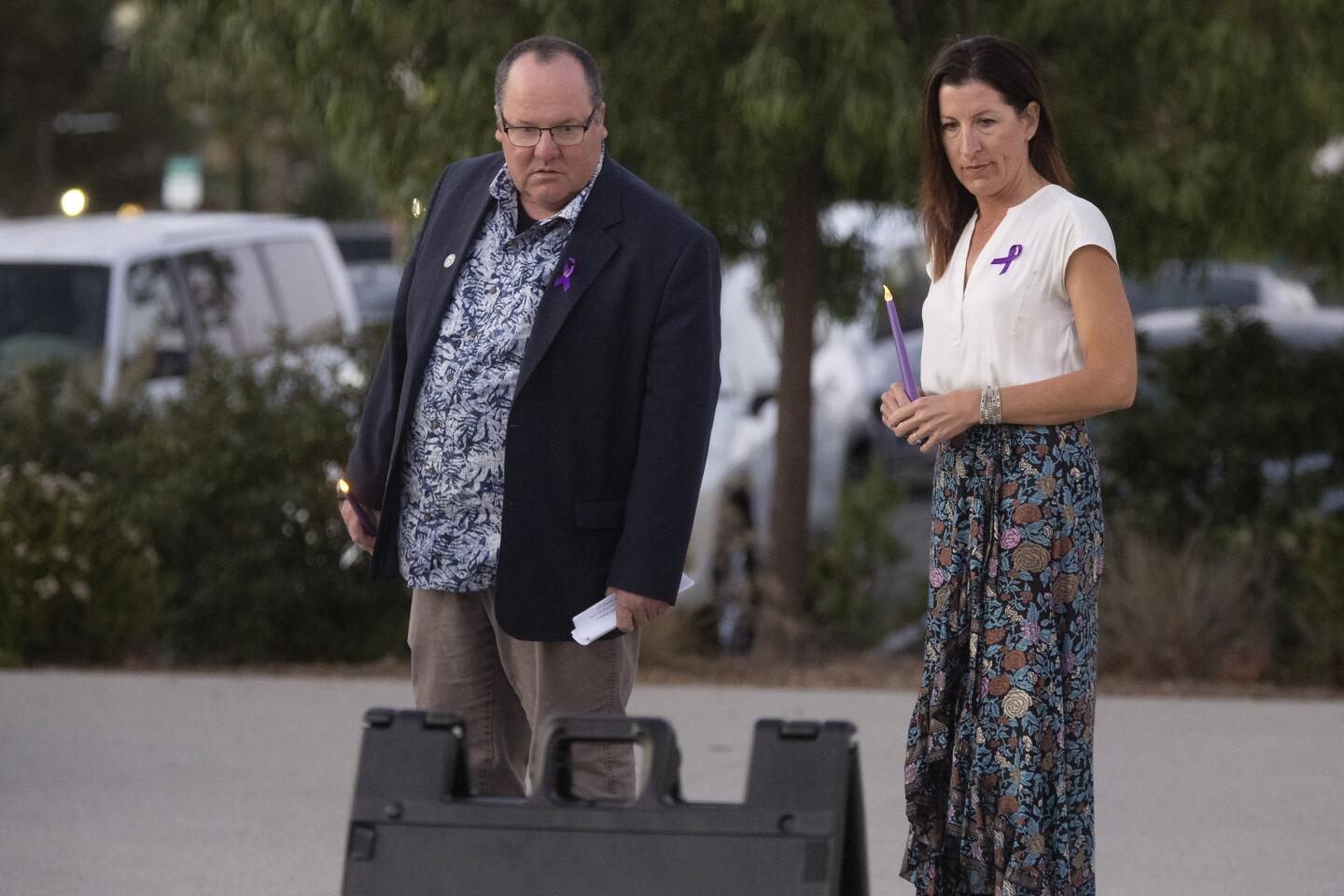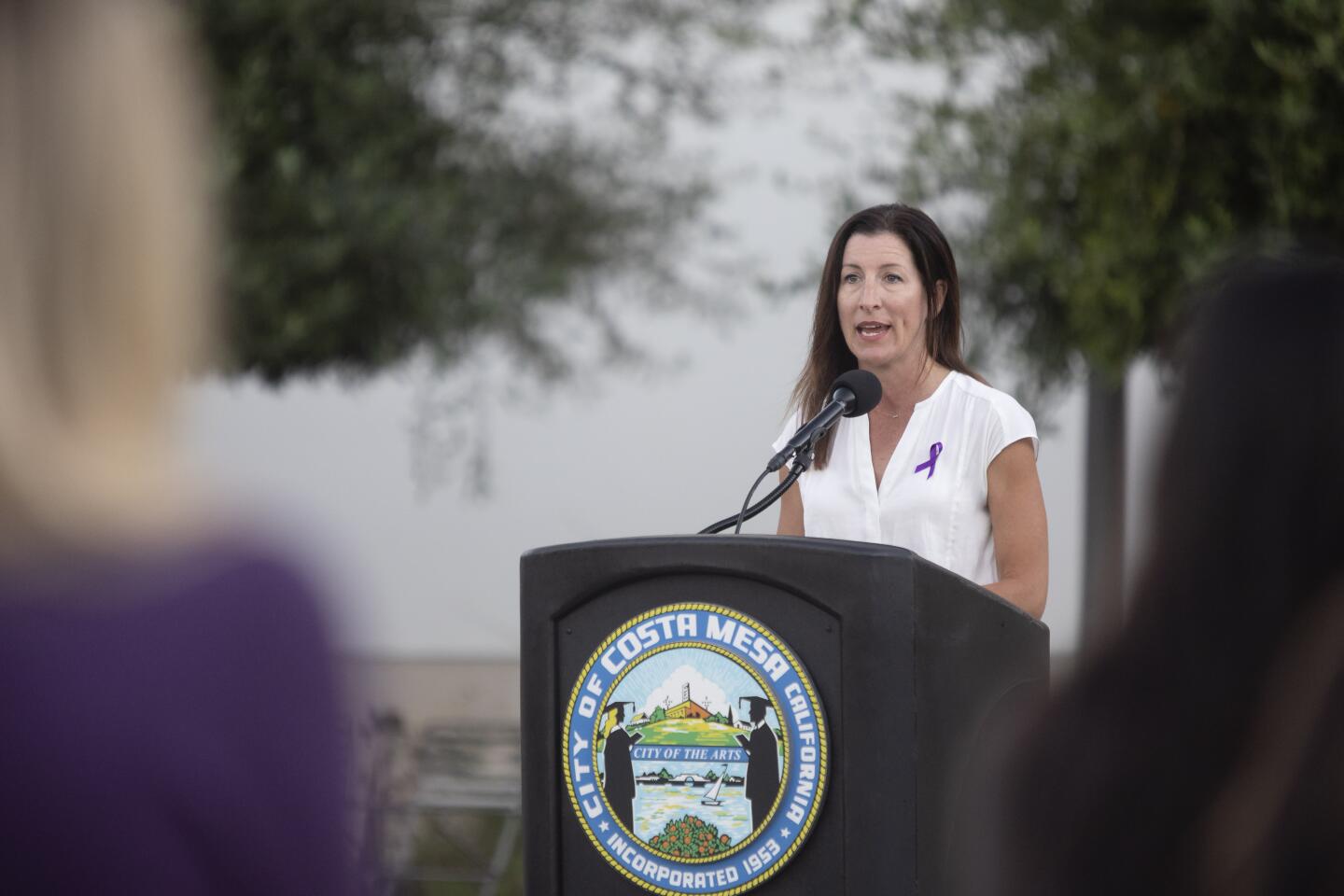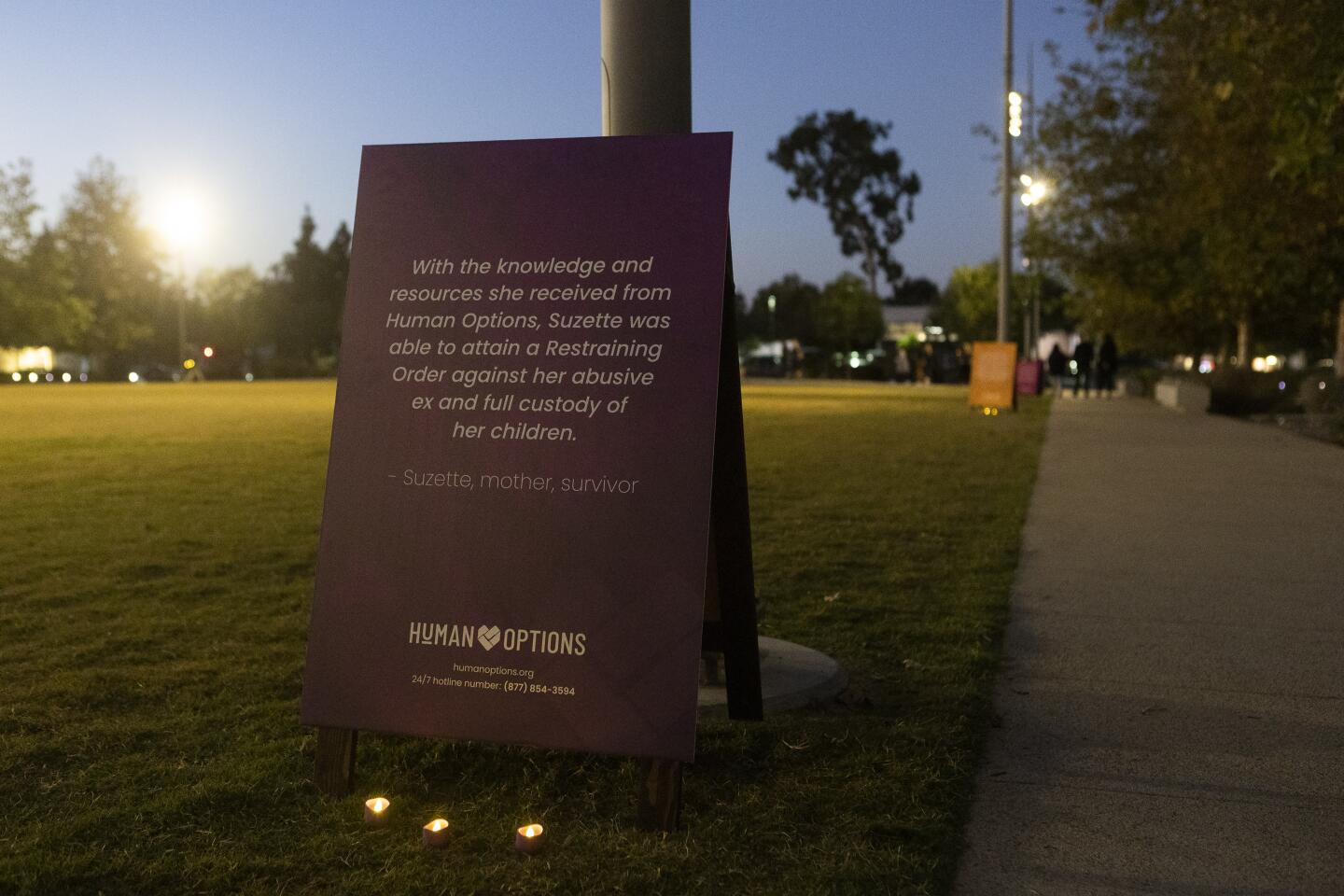Walking vigil held in solidarity with survivors of domestic violence at Lions Park in Costa Mesa
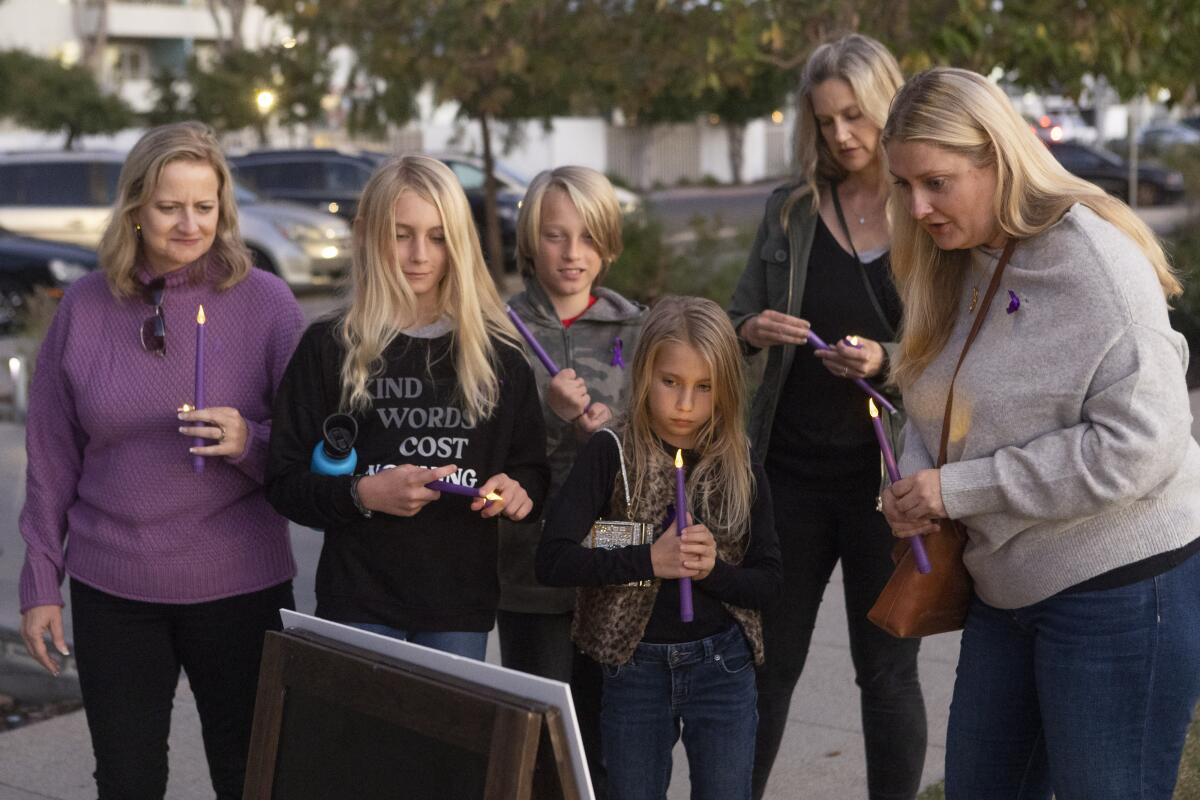
- Share via
Activists held a walking vigil in solidarity with survivors of domestic violence at Lions Park in Costa Mesa Tuesday evening.
The event was hosted by Human Options, a nonprofit that provides financial and legal aid, access to shelter and other forms of support to survivors of abuse. It was held during domestic violence awareness month, and amid some of the highest demand the organization has ever seen for those services, its chief executive, Maricela Rios-Faust, said.
“In 2020, we saw a 46% increase in our hotline calls, and that has remained about the same,” Rios-Faust said.
The pandemic brought financial stress that may have contributed to increased tensions in many households and the uptick the nonprofit saw in calls for help, Rios-Faust said. She added that the shift to remote work at many companies gave abusive partners or guardians more access to the people they victimize. Many continue to work from home.
On Tuesday, supporters met in front of the Donald Dungan Branch Library and circled the park several times to raise awareness of abuse taking place in the household. They also heard comments from Rios-Faust, Costa Mesa Mayor John Stephens, City Councilwoman Arlis Reynolds and police chief Ron Lawrence.
California Assemblywoman Cottie Petrie-Norris and Orange County Supervisor Katrina Foley also shared their personal experiences as survivors of domestic violence with the handful of attendees who gathered at the park.
Foley left home at the age of 16 to escape her abusive stepfather. While pursuing a law degree, partly in hopes of aiding those impacted by domestic abuse, she befriended a woman she described as a prisoner in her own home. The supervisor used to discreetly send her friend articles and links to resources encouraging her to escape her abuser, even though she understood that the woman’s partner might beat her up if she was caught looking at the material.
“If you’re in a situation like her or my mom, you feel like you have to sacrifice your own physical safety to protect your kids, keep them fed with a roof over their heads,” Foley said. “And it’s hard to understand, at the time, that when you leave you can have your life back and so much more.”
About 56% of women living on the street in California report that they became homeless because of domestic violence, Rios-Faust said. She added that the need for emergency shelter continues to outpace its availability.
Recurring exposure to violence can have detrimental effects on brain development in children, Rios-Faust said. And those who grow up with an abuser in their homes often bear the emotional scars of their trauma into adulthood.
Abuse can become “learned behavior,” leading to a cycle that repeats across generations, Stephens and Lawrence said. And domestic violence affects people from all walks of life, regardless of their socio-economic background.
Stephens noted that one out of every four women and one out of every seven men have experienced some form of severe physical abuse at the hands of a partner. Lawrence said practically every single police officer, including himself, has responded to a call reporting domestic violence.
A report published earlier this year by a panel including Rios-Faust, other experts and members of law enforcement found that the deaths of at least 113 people in Orange County between 2006 and 2017 were related to domestic violence. Nearly 80% of those cases involved a homicide, and 88% of those who were murdered were women.
The report went on to note that many cases are miscategorized as “accidental,” so the actual toll of abuse in the household may be much higher.
“We must assume that the following statistics reflect only part of the problem,” the authors of the report wrote in their executive summary.
Foley said education and efforts by groups like Human Options are essential in pushing back against the prevalence of domestic violence. She also highlighted plans by the nonprofit WISEPlace to construct nearly 50 units of permanent supportive housing for women. That project should break ground around February in Santa Ana, the supervisor said.

All the latest on Orange County from Orange County.
Get our free TimesOC newsletter.
You may occasionally receive promotional content from the Daily Pilot.
